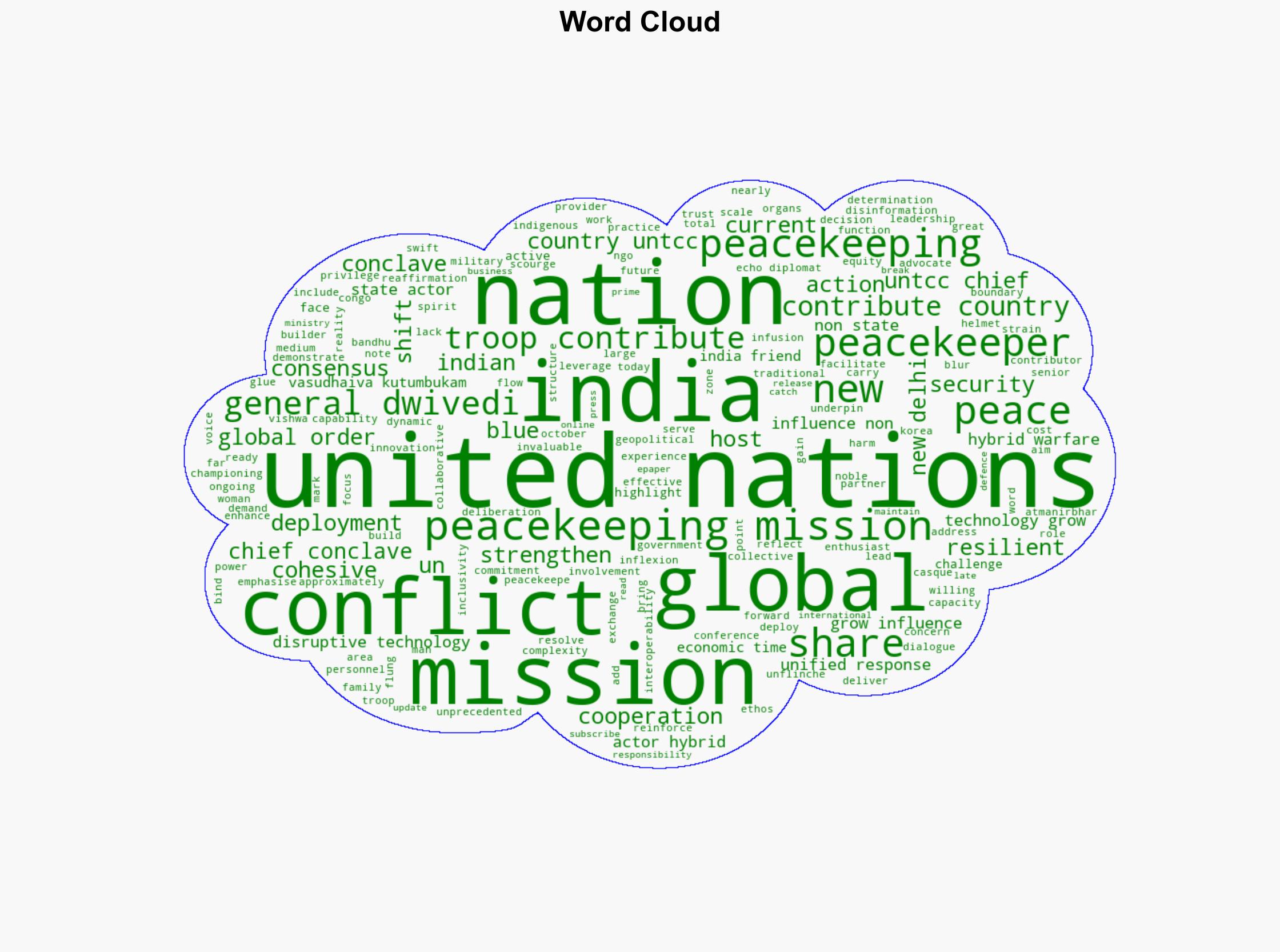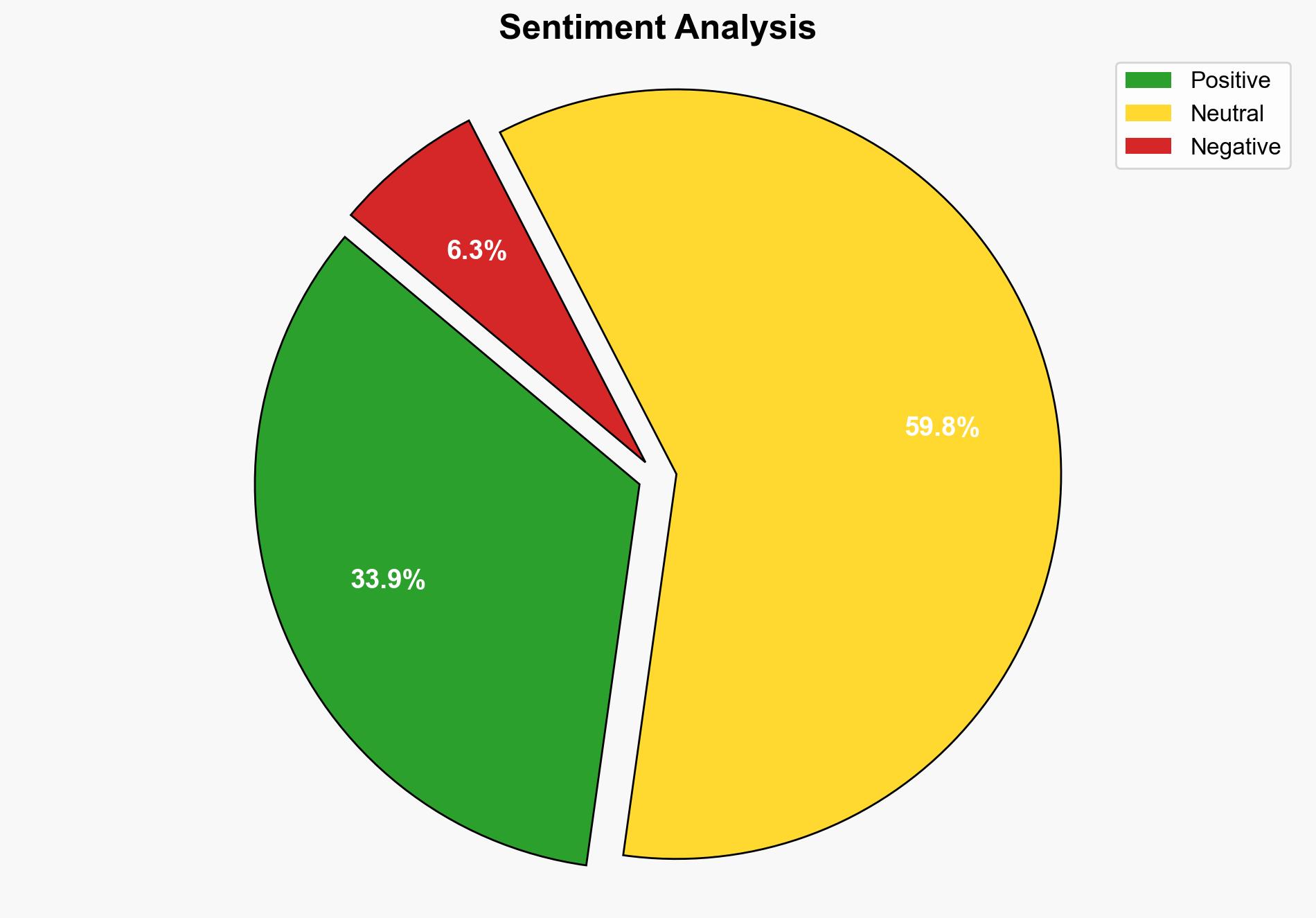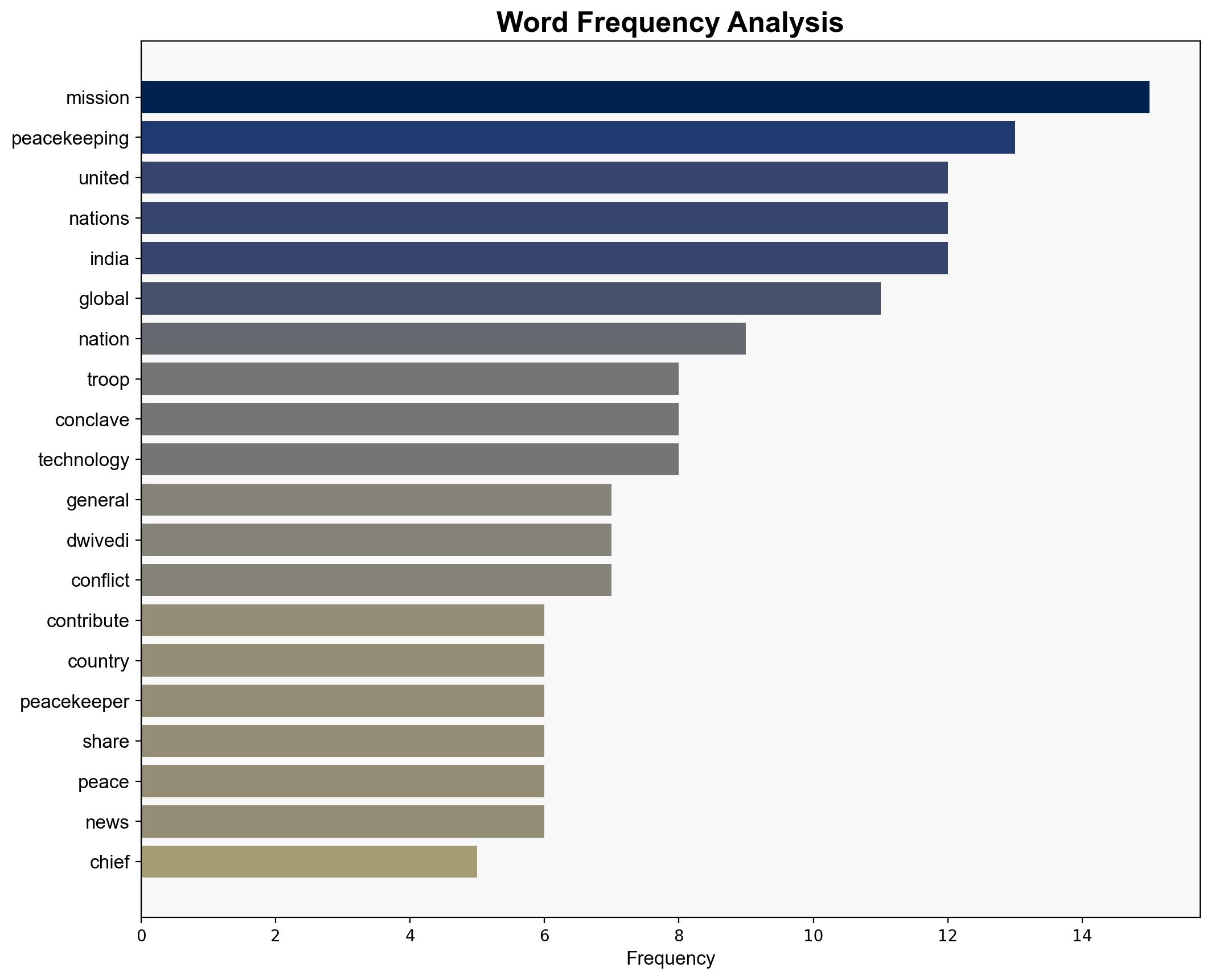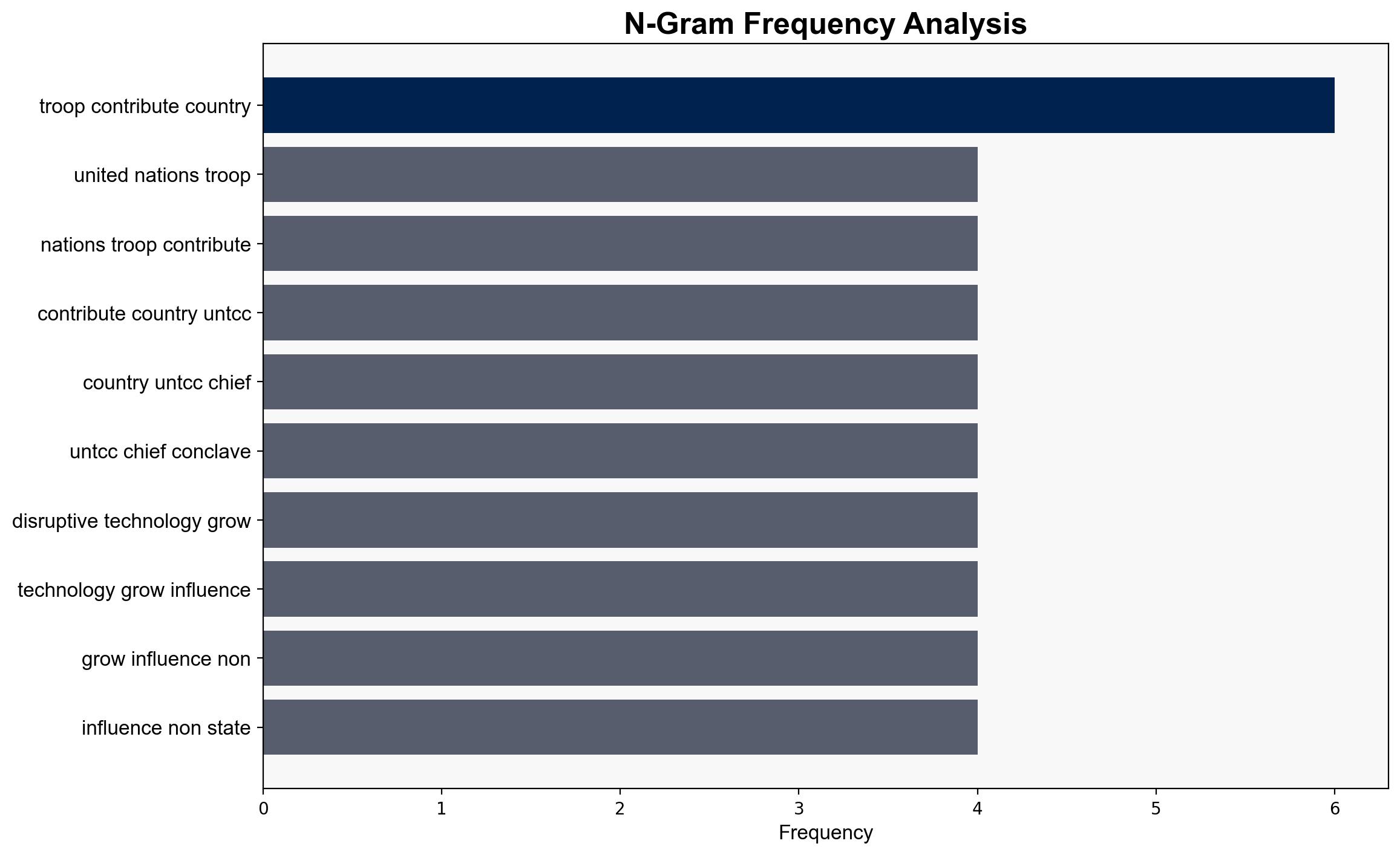Shifting geopolitical currents underpin UN action COAS Gen Upendra Dwivedi highlights challenges to global peacekeeping – The Times of India
Published on: 2025-10-14
Intelligence Report: Shifting Geopolitical Currents Underpin UN Action – Challenges to Global Peacekeeping
1. BLUF (Bottom Line Up Front)
The most supported hypothesis is that the current geopolitical shifts and technological advancements are significantly straining the effectiveness and cohesion of UN peacekeeping missions. Confidence Level: Moderate. Recommended action includes enhancing technological integration and fostering stronger international collaboration to adapt to these challenges.
2. Competing Hypotheses
Hypothesis 1: Geopolitical shifts and disruptive technologies are undermining the traditional UN peacekeeping framework, necessitating a comprehensive overhaul to maintain global peace and security.
Hypothesis 2: The challenges faced by UN peacekeeping missions are primarily due to internal inefficiencies and lack of cohesive action among member states, rather than external geopolitical changes.
3. Key Assumptions and Red Flags
Assumptions:
– Hypothesis 1 assumes that external factors like geopolitical shifts and technology are the primary disruptors.
– Hypothesis 2 assumes that internal UN dynamics are the main issue.
Red Flags:
– Potential bias in attributing challenges solely to external factors without considering internal inefficiencies.
– Lack of specific data on how disruptive technologies are currently being integrated into peacekeeping missions.
4. Implications and Strategic Risks
The evolving geopolitical landscape and technological advancements pose risks of increased conflict complexity and reduced effectiveness of peacekeeping missions. This could lead to a higher incidence of unresolved conflicts, regional instability, and potential escalation into broader international disputes. Economic and cyber dimensions also present risks, as non-state actors may exploit these technologies to disrupt peace efforts.
5. Recommendations and Outlook
- Enhance technological capabilities within peacekeeping missions to counteract the influence of disruptive technologies and hybrid warfare.
- Strengthen international collaboration and dialogue to address both external and internal challenges to peacekeeping.
- Scenario Projections:
- Best Case: Successful integration of technology and increased international cooperation lead to more effective peacekeeping operations.
- Worst Case: Continued geopolitical tensions and technological misuse exacerbate conflicts, undermining global peace efforts.
- Most Likely: Incremental improvements in peacekeeping effectiveness as nations gradually adapt to new challenges.
6. Key Individuals and Entities
Upendra Dwivedi, India, United Nations, Non-state actors
7. Thematic Tags
national security threats, cybersecurity, counter-terrorism, regional focus





